Marlene Williamson is an Advisor and Board Director for several technology companies. She has spent her career being a non-technical leader, surrounded by Engineers and technology professionals. She knows what it feels like to have a different perspective. She knows how to encourage others to think differently, be innovative, and take risks.
About the Guest:
Marlene Williamson is an advisor and board director of several technology companies. She was a Chief Marketing Officer for public and private technology companies (Apple, IBM, Symantec, Hitachi, Western Digital, Ericsson) where her expertise as a global digital strategist resulted in successful IPO’s, mergers and acquisitions to Oracle and Microsoft.
Marlene was also CEO and board director of Watermark, the gender diversity organization that promotes the advancement of women in leadership.
She has been named Marketer of the Year by the American Marketing Association, Partner of the Year by Yahoo, Innovator of the Year by Google, Outstanding Female Executive in Silicon Valley by the YWCA, and a Woman of Influence in Silicon Valley by the San Jose Business Journal.
She is certified in corporate governance from Harvard, is a graduate of Northwestern University’s Executive Management Program, holds an MBA from DePaul University and is a frequent international speaker on gender diversity and technology marketing issues.
https://www.linkedin.com/in/marlenewilliamson/
About the Host:
Amy L. Riley is an internationally renowned speaker, author, and consultant. She has over 2 decades of experience developing leaders at all levels. Her clients include Cisco Systems, Deloitte, and Barclays.
As a trusted leadership coach and consultant, Amy has worked with hundreds of leaders one-on-one, and thousands more as part of a group, to fully step into their leadership, create amazing teams, and achieve extraordinary results.
Amy’s most popular keynote speeches are:
The Courage of a Leader: The Power of a Leadership Legacy
The Courage of a Leader: Create a Competitive Advantage with Sustainable, Results-Producing Cross-System Collaboration
The Courage of a Leader: Accelerate Trust with Your Team, Customers and Community
The Courage of a Leader: How to Build a Happy and Successful Hybrid Team
Her new book is a #1 international best-seller and is entitled, The Courage of a Leader: How to Inspire, Engage and Get Extraordinary Results.
https://www.linkedin.com/in/amyshoopriley/
Thanks for listening!
Thanks so much for listening to The Courage of a Leader podcast! If you got inspired and/or got valuable leadership techniques you can use from this episode and think that others could benefit from listening, please share using the social media buttons on this page.
Do you have questions or feedback about this episode? Leave a comment in the section below!
Subscribe to the podcast
If you would like to get automatic updates of new The Courage of a Leader podcast episodes, you can subscribe to the podcast on Apple Podcasts. You can also subscribe in your favorite podcast app.
Leave us an Apple Podcasts review
Ratings and reviews from our listeners are extremely valuable to us and greatly appreciated. They help our podcast rank higher on Apple Podcasts, which helps us ignite The Courage of a Leader in more leaders! Please take a minute and leave an honest review on Apple Podcasts.
Teaser for next episode
My guest on the April 19 episode is Larry Durham, and he is a thought leader. He is a visionary in the fields of enterprise learning and talent development. In this episode, Larry and I discuss tactics to stay competitive in our rapidly changing world and we explore how to Intentionally Disrupt Before You Are Disrupted. Join us again in 2 weeks!
Transcript
Marlene Williamson is an advisor and board director for several technology companies. She has spent her career being a non tech leader, surrounded by engineers and tech professionals. She knows what it feels like to have a different perspective. She knows how to encourage others to think differently, to be innovative, and to take on real risks. I'm glad you're here to listen to this episode with Marlene, on how to be innovative in every circumstance.
Amy Riley:Welcome to The Courage of a Leader podcast. This is where you hear real life stories of top leaders achieving extraordinary results. And you get practical advice and techniques you can immediately apply for your own success. This is where you will get inspired. And take bold, courageous action. I'm so glad you can join us. I'm your host, Amy Riley. Now, are you ready to step into the full power of your leadership and achieve the results you care about most? Let's ignite the courage of a leader.
Amy Riley:So Marlene, being someone who's been a non tech leader, surrounded by engineers, and technical folks, and having worked in fast paced industries throughout your career, you have a comfort living in the Cray. How can What advice would you give to other leaders about increasing their comfort with ambiguity?
Marlene Williamson:I think with experience, you get more comfortable, you've been there, you've seen it, you've done it. And my attitude always was we're not curing cancer here, people, you know, we're, we're marketing a software product or whatever. Mm hmm. And the world is not going to come to an end here. If we don't make that deadline. Um, you know, we will adjust, we may fail. And that's okay. And to, you know, make sure people had what they needed to do their best. But when I look back on some of the great teams that I've had a privilege to work with, they would always say, Marlene, you made us better than we ever thought we could. And part of that was being comfortable in the gray cow you have, you have guideposts you have parameters. You know what your end goal is. But how you get there can take a lot of different routes. And that's okay. You don't have to be black and white, saying, This is how it has to be done. That gives people an opportunity to be innovative, creative. And maybe you've done it before and you thought that's the way it should, should work. But now you've got a different set of team members who have different filters, different sets of experiences. And they will have different ideas to innovate and drive where you want to go. And that's where everybody needs to say, Hey, that's a great area. We've never done it that way before. But let's give it a shot. And you might be surprised where where it takes you it could turn out way better than you ever thought and working with a lot of engineers, they see the world as black and white. Yeah, and I am a go to market strategist which you see that in marketing and sales people and they are very comfortable in the gray. And so it's the blending of working with you know people who are left brain and right brain and how you can come to the same super outcome in in in working in gray areas and being comfortable with that and and giving people enough latitude to fail as well as enough time. So good. Being not being a good long term strategic planner. Um Because there will be screw ups. And that's okay. You built in enough time to screw up for this, and then rewind and try it again, a different, you know, so where I would always say no, like you said, I worked in fast paced industries and technology is generally like that. Mm hmm. But, um, I would always say, if the environment is such where there's always a gun to your head, where you're always stressed out, oh, my god, how am I going to accomplish this? How are we going to make these deadlines? If it's always like that there's something wrong with your environment. And there's something wrong with your leadership. Because there will always be peaks and valleys in an environment that a leader has to deal with. But if it's always running up here, if it's always stressed out, there's something wrong and the leaders, the leaders of that environment, need to address it and and handle it because you're killing your people. Yes. And they're, they're your most valuable asset. They're, they're the IP I, you know, I used to say they're driving out of your, your parking lot every night, your job as leader is to make sure they come back. Because the war on talent is the most significant thing that a leader has to deal with.
Amy Riley:Yeah, yes, yes, yes. And it's, as
Marlene Williamson:you know, when the crap hits the fan, if you as a leader have created an environment that people love, they'll put up with that crap. Because it will happen, it will happen. Yeah. Whereas if the environment is not good, as soon as it hits the fan, they're the first to say bye, bye. Yeah. The great resignation, as we all know, too Well, right now, right?
Amy Riley:Yes, exactly. You have said so many great things already, Marlene, and I like that you started with comments around keeping it in perspective. Let's let's keep it in perspective. And let's know that there's going to be failures. Let's build in the time for those failures. And then we can let folks run off and figure out how and then get their most creative, new, different ideas about how to approach this.
Marlene Williamson:Yeah, I always say fail fast. Yeah. And I always handed out awards to people who screwed up. I love that. And so that the rest of the team would say, Hey, it's okay. I mean, we don't repeat the mistakes. Right? But it's not, you know, shameful, right? To screw up at all. Not at all. We all learn from it. Yeah. And we share those experiences, so other people can benefit from what happened us.
Amy Riley:Okay, great. Yeah, I want to talk more about that. I want to let the listeners know that we are talking to Marlene Williamson. She is an advisor and board director of several technology companies. She was the Chief Marketing Officer for a number of public and private technology companies, including Apple, IBM, Symantec Hitachi, where her expertise as a global digital strategist, resulted in successful IPOs mergers and acquisitions to Oracle and Microsoft. Marlene was also CEO and board director of watermark, the gender diversity organization that promotes the advancement of women in leadership. She has been named marketer of the Year by the American Marketing Association, Partner of the Year by Yahoo. Innovator of the Year by Google, outstanding female executive in Silicon Valley by the y w. Ca, and a woman of influence in Silicon Valley by the San Jose Business Journal. It's an honor to have you with us, Marlene, thank you for being here. And yeah, and we'll continue the the conversation. You're talking about awards to people who screw up really celebrating the failures. What was the impact of doing that? Marlene, because we hear about leaders, how do we make it comfortable with failure? I don't see many leaders taking it to the level that you just described. Let's celebrate it. Let's have an award. What was the impact that, how did it shift the perspectives in the environment?
Marlene Williamson:It, the impact was more risk taking. And too many people are scared to take a risk. Mm hmm. And that's one of the things I love about working in technology is because the technology would make the world a better place. But in order to keep the technology improving, you had to always keep taking risks, and trying different things. And when you get successful, that's when the risk taking slows down. Yeah, because there's more to fail. And, and that's scary. That's scary for a lot of people. And, and so I always wanted to create that new startup feel with an older established successful environment. Never forget our roots. Yeah, there we felt comfortable. And it was okay to screw up. And, and, and, you know, I always encourage people to look outside of their industry, look at the competition. What did they do to screw up? How did we, how can we learn from it? And it gave people us, it wasn't this sense of dread. Oh, my God, I'm gonna be fired. You know, if if something wrong happens it that isn't. That's not the environment, any leader wants to create, you don't want to create this fear in people. You want to create a comfort level where people feel empowered, that they enlist listened to. And you know, I would always ask people, well, what do you think? Yeah. And to try and pull out the best thinking the innovation, because some people just don't automatically, you know, share, verbalize some people, you just can't shut up. But I want to make the people everybody in the room feel like they are heard. And, you know, you want them to verbalize what they think so that you as the leader, yeah. Like you're driving the bus, you want other people to help you drive the bus. And that's, that's where you grow future leaders. Nothing makes me happier than to stand in the back of the room, watching a team member up front on stage delivering the message of the biggest cheerleader in the back room. That's, that's the highlight of my day, and grow growing the future leaders. And, and part of doing that is being a risk taker, and taking chances, and celebrating failures as well as wins.
Amy Riley:Yeah, yeah. That's great. Yeah. How do we give all team members time and ways to verbalize their ideas? I feel like so many structures in our workplace. The way that meetings can unfold, are designed for the extroverts who process out loud and have those ideas at the tip of their brains and the tip of their tongues and feel comfortable articulating it in that moment. What about our folks who need some process time? Yes. And there's brilliance there.
Marlene Williamson:Just give them a heartbeat. Hmm. I, Oh, that reminds me, maybe I was one of those people. When I look back on my own career. I didn't talk enough. I didn't talk enough. And I think a lot of women felt that way. Um, there are plenty of people we've all worked with was like, they could talk a million miles per hour and then you sit there and you're listening. It's like, they're really not saying anything. They're just yapping, flapping their jaws. And I worked with a wonderful woman who, who told me about some people think, to talk and some people talk to think yes. And I'm the former, I think, to talk Uh huh. I like to think that after I've given it some thought what comes out of my mouth is worth listening just maybe not all ways, but um, you know, I always say that superstars crave feedback. They're always the ones going, how am I doing? How am I going? You know, and I always would encourage team members to ask for that feedback. You know, it's a two way street when your boss is telling you, well, here's what I think's going well. And here's what I think you can improve upon. Hey, that's a green line for you to turn the tables on your boss, same thing, you know, you're not a victim. You're not this is not a one way street. For a relationship to work. It's got to move both ways. And some people are intimidated. Yeah, giving that feedback. So I always would say, as a leader, what am I doing wrong? If they are intimidated or scared or shy of giving feedback? Mm hmm. And some people are thinkers, and some people are doers. And I love working with the thinkers. I like people who can do both. I don't want people who just say, well, just tell me what to do. And I'll do it. Right, right. You're you're not nobody is hired, just to keep the status quo. We're on to make things better. Yeah. Yeah.
Amy Riley:Yeah, we have to be these days. That is a really good point. How do all leaders invite and make sure that they're getting that that true feedback from all of the team members, right and open to that feedback? sounding different from each individual? Because what does that individual need? What's working for them? What's not working for them, so that they can bring so we can bring out their best performance and their best ideas? Who, yeah, great. Yeah. Yeah. You also, I love that you said, how do you keep that startup feel in an organization? Over time? I haven't heard someone stated quite like that. And, yeah, keep that I can just feel it right, that energy that you have in a startup, we've got to go for it, we've got to come up with the with the next idea, we got to try something new. And over time, that means you're still implementing and riding the way from the last great idea. And before that tops out, you're launching the next wave.
Marlene Williamson:I always loved working in environments where you the leadership meetings, you would share best practices. Hmm. And, and I would learn from my colleagues on how they got the best performance out of their teams, and hopefully, they they learned something from me, but too many leaders, in my opinion, especially in large, established environments, you know, you're just like, you're on a wheel. You know, you get you get, you know, messages and policies, and recommendations. And it's like, okay, well, I guess, you know, this is, this is the rules of the road that have come down from on high. But I do think leaders at every level, have an obligation to be creative and innovative. And take some latitude within the confines of the corporate environment, of trying new things, and being creative and innovative. That will give you the best results out of your team, and then sharing those with your colleagues. You go oh, that's a great idea. Can I steal that? I love that. Yeah, that's what I would always do with my competition. It's like, Ooh, look at what they do. Let's, let's put a bow on it. Some lipstick and try it on our own, you know, or
Amy Riley:we make this tweak. It can work here.
Marlene Williamson:Exactly. I say steal from the best.
Amy Riley:Yeah, yeah.
Marlene Williamson:Even outside of your industry, something that you wouldn't. It's like, whoo, you know, if we did this or this, we could probably apply that to our business.
Amy Riley:Yes. Yes. I love that simple concept to share leadership best practices. You and I have talked before about some of the most powerful leadership development programs have group sessions, where skill building is happening. And then they have those smaller peer group learning sessions, where you are sharing those best practices. And you're hearing how different leaders approach leadership in different ways. And those ideas, yeah,
Marlene Williamson:you, you know, you, you need to be a visionary, you need to see the world is half full, you need to get people excited. You need to amp it up. And, and not in a phony way. You know, because all leaders have to deliver bad news. And but it's how you deliver it, so that people feel like, okay, we're going through a really crappy period right now. But, but here's what we can do to get out of this. And continue on our path of seeing a brighter future a brighter vision. And that's what gives people hope. Yeah, it's like, oh, you know, I want to get adequate. No, they, they realize that this is a normal process, that not everything is superduper. All the time. It's called, it's called work. It's not called play.
Amy Riley:It is, it is. I do believe that leaders have a better chance of meeting their full potential when they're embracing their strengths when they're embracing their style. And something I'd love to ask you, in particular, Marlene, because you were talking earlier about how you were a non tech leader more comfortable with the gray than the leaders that were around you. I work with many leaders who find themselves that might not be this the specifics of your situation, but they have a different style than those around them. Ah, anything you can offer about staying true to our own style, when the majority of leadership style looks and feels different than our own? How do we stay in our unique gifts, and still bring the unique value the neat, unique perspective that we can?
Marlene Williamson:That's a great question. I often felt like I was a fish out of water, I'm sure. Yeah. And I had to use the force of my personality to influence Okay, and paint a brighter future. And, and through my words, you know, the eloquence of getting them excited about oh, my god, Marlene thinks we can do this, you know, and, and, and I really, really enjoyed watching the light bulb go off in your brain, or the sparkle in their eyes. Because somehow what I would say to them, would prompt them to probe a little more. Well, Marlene, how might that work? Oh, my God. And as soon as I did that was like, I got them. I got, they don't think I'm an idiot. They don't think I'm off the wall. They think that perhaps there's a grain of truth, an element of possibility that what she's talking about, because I would always say, you know, find the woman who can put lipstick on a pig to you know, make you make the company bigger and badder than they think they really are. And to flinch and to punch above their body weight. And, and to not do it in an oily, slimy way. It's like she's, she's bullshitting us, you know, but grounded in reality. And I'm so I really worked hard at, you know, not just in a group but one on one with people to really find out what their concerns were, why they didn't think it would work. And because oftentimes, I would be the first leader who would come into that very technical environment to show them that it's not necessarily the product that's going to win you market share, get your idea IPO, you know, increase your revenues. In image, it's your brand, it's what people think about, you know, your brand and what, and to them, that was a foreign concept. And, you know, I, it was it was fun to educate them. And, and that's that's how I went. That's how I went about it. Yeah, it was, I always thought, you know, I've spent my life paying it forward, and you know, helping young women and have it better than I did the next generation, making empowering them. But I also looked at it about helping people who saw the world as black and white, understand that there was another way to, and helping them understand, and they learned something from
Amy Riley:so nice, nice. So I'm hearing you used your words, to use your words, in a number of different ways. It was not only leaning into what made you different, and bringing that vision to life, you are also using your words, to have them understand that this is grounded in reality, I've met with you one on one, and I understand where we're at and what we're up against. And what we think is possible, I'm also hearing you use your words, in one on one situations, and in group situations. And that's really helpful to think about it that way. Because I think many would think a visionary leader needs to spend all their time on the stage in front of the group, laying the you know, talking so enthusiastically about that vision, but it's using your your words and connecting with people in different ways.
Marlene Williamson:is the cultures hmm, I should:Amy Riley:Yeah, yeah. Marlene, you have said so many great things today. To highlight some of it, keep it in perspective. Expect failure, build in time for failure, celebrate failure. Think about the culture be environment, right? How do you make it safe for folks to be an innovative? How do you have that startup feel? shared leadership best practices. I'm also hearing you know, lean into what makes you different, the unique style and perspective and value that you bring as a leader. Thank you for sharing all of that. Marlene, it was a pleasure having you on the courage of a leader podcast today.
Marlene Williamson:Thank you, Amy. It was fun.

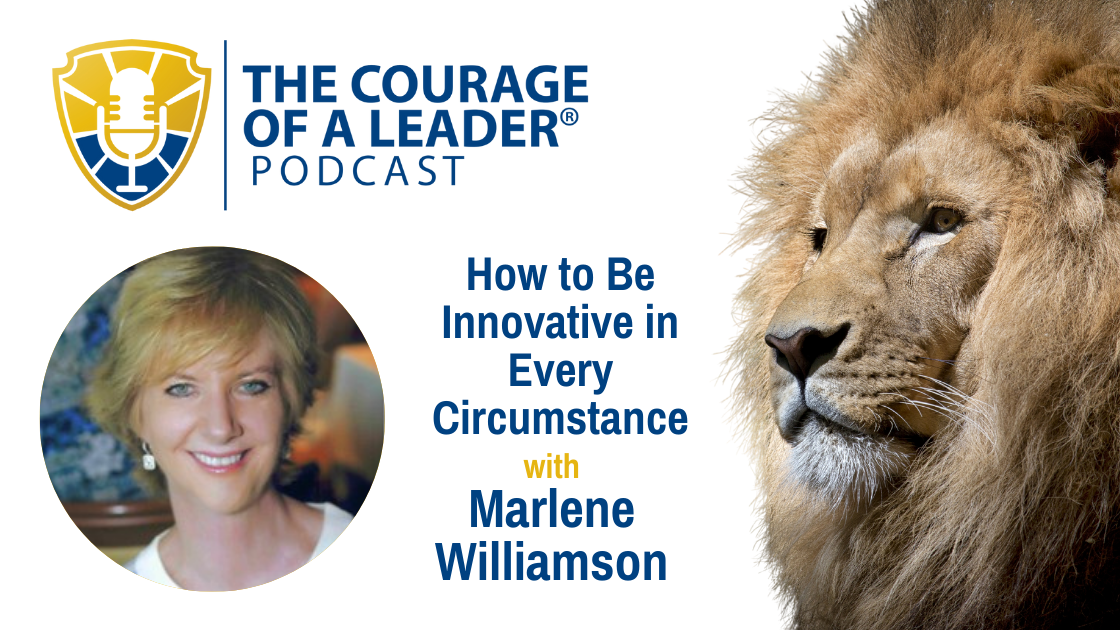
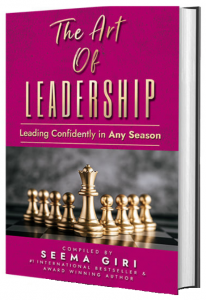
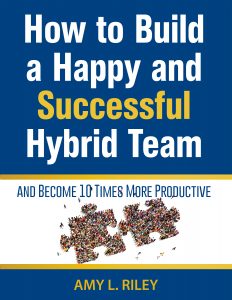
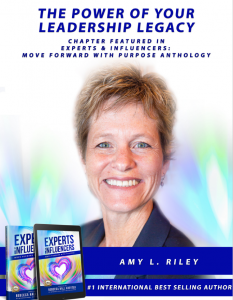

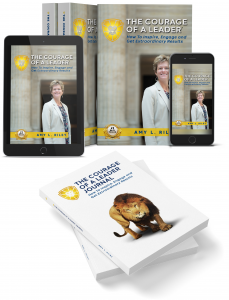

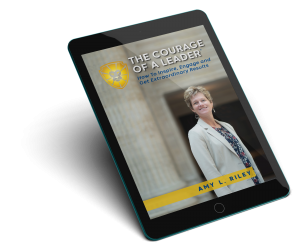
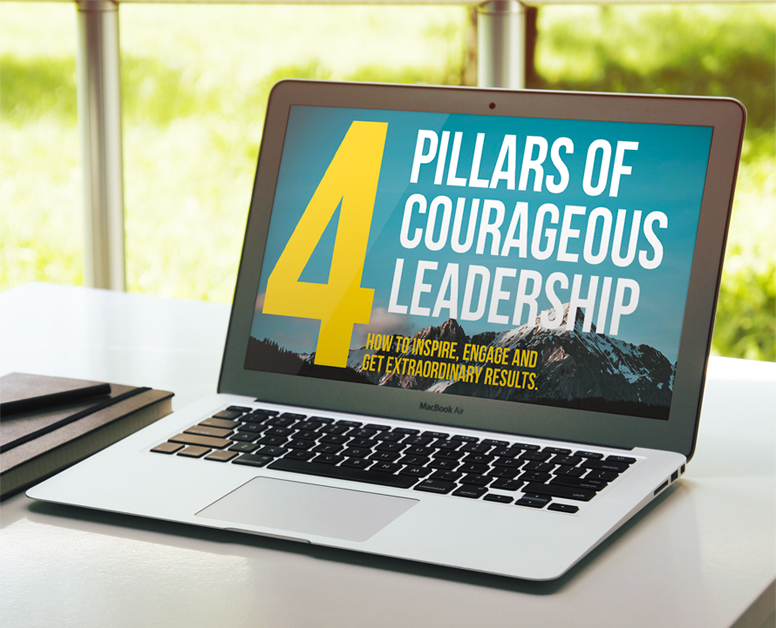 A Summary of The Courage of a Leader® 4 Pillars
A Summary of The Courage of a Leader® 4 Pillars